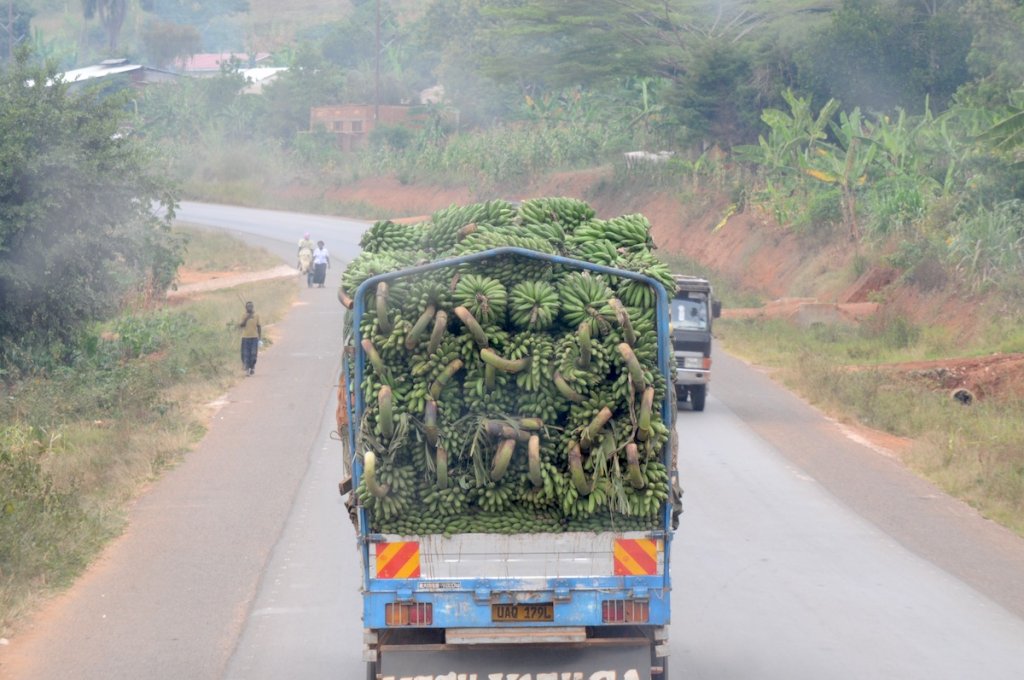UPDF’s intervention in South Sudan indicates Uganda’s strong interest in the new country. Security and regional stability seems to be the chief motives, but various economic interests also crop up in discussions about Uganda’s involvement. It is, however, difficult to assess the importance of this dimension since the extent and nature of Ugandan economic activities in South Sudan is opaque at best. Official statistics show an incomplete picture of past and current trade relations. One obvious omission is the substantial volume of informal trade. Less obvious, but equally important, is the non-pecuniary sides of bilateral trade, in particular political and social ramifications. Are Uganda’s economic interests in South Sudan a cause of war or an impetus for peace?
Here is what – or, rather, how little – we know about Uganda’s economic interests in South Sudan:
- South Sudan is an important trading partner for Uganda. Most of the vegetables, fruits and various staples are provided by Ugandan traders. Many are involved in supplying building materials.
- Estimates of the number of Ugandans involved in trade in South Sudan diverge widely and figures ranges from 10 000 to 3 million. Many of these originate from Northern Uganda and Kampala.
- Compared to Kenya and Ethiopia, the Ugandan government is less involved in shaping bilateral trade. Uganda has no official trade policy or coherent plan for how to strengthen or direct the economic activities in South Sudan.
- The historical cross-border trade is characterized by local and regional networks. The Arab trade routes were cut off during the war in 1950’s and replaced by local networks across the Uganda-southern Sudan border.
- Improved security and inflow of oil revenues in South Sudan between the years of 2005-2011 resulted in a golden age of Ugandan trade.
- The political crisis in 2013 and the accompanying economic down-turn have reduced trade, but to what extent remains uncertain.
The effect of the current economic crisis on the bilateral trade including the political and social dimensions of trade is unknown. Interviews with Ugandan traders indicate two parallel trends. First, the increased negative sentiments towards Ugandan traders in particular. Although Ugandans are still acknowledged for their important role of supplying South Sudan with essential goods and services, increasingly, they are viewed as competitors or troublemakers. The UPDF intervention has added hurt to injury: the South Sudanese opposition associates Uganda and its army with war atrocities and their future re-entry into South Sudanese politics might affect Uganda’s economic opportunity to do business.
To address a mounting trade deficit and increase local employment, GOSS implemented rules forcing foreign investors to enter into joint ventures with local partners. Foreign companies are also pressured into hiring South Sudanese suppliers and sub-contractors. The banning of foreign boda-boda drivers (motor cycle taxis) is another example of discriminatory rules indicating an increased resentment towards foreign traders. These and others unfavourable rules and regulations, as well as frequent verbal and physical harassment, increases the risk and reduces the gains for individual traders.
The other trend is increased competition among foreign traders as a result of the economic crisis. Now, to sign lucrative contracts and to be reimbursed, business men is increasingly dependent on political networks (both in Uganda and South Sudan). Thus, trade is increasingly controlled by the political elite and reinforces existing neo-patrimonial networks.
Ugandan’s stability is not only dependent on the absence of rebel groups in South Sudan. Equally important is to maintain substantial local and regional trade relations with a friendly neighbour. If these two trends of mounting xenophobia and increased competition continue, northern Uganda in particular might be affected by a shrinking and unfriendly market in South Sudan. In these areas people are living within a subsistent economy and are particularly vulnerable. This should be a concern for the National Resistance Movement as the country is approaching local and national elections and support of the ruling party in these areas is tenuous at best.
A return to the golden age of 2005-2011 will remain a distant dream as long as Uganda lacks a clear plan for how to improve future trade relations. To lay the foundation for economic growth and regional integration Uganda need to shape a future peace agreement in South Sudan. UPDF’s military intervention in the conflict gives Uganda the power to veto agreements, but the current position as an outsider in the formal peace negotiations reduces Uganda’s opportunity to influence the contents of such an agreement. To meet its need for stability it is necessary for Uganda to find a strategy for how to become directly engaged in the regional efforts to mediate a solution to the conflict.
